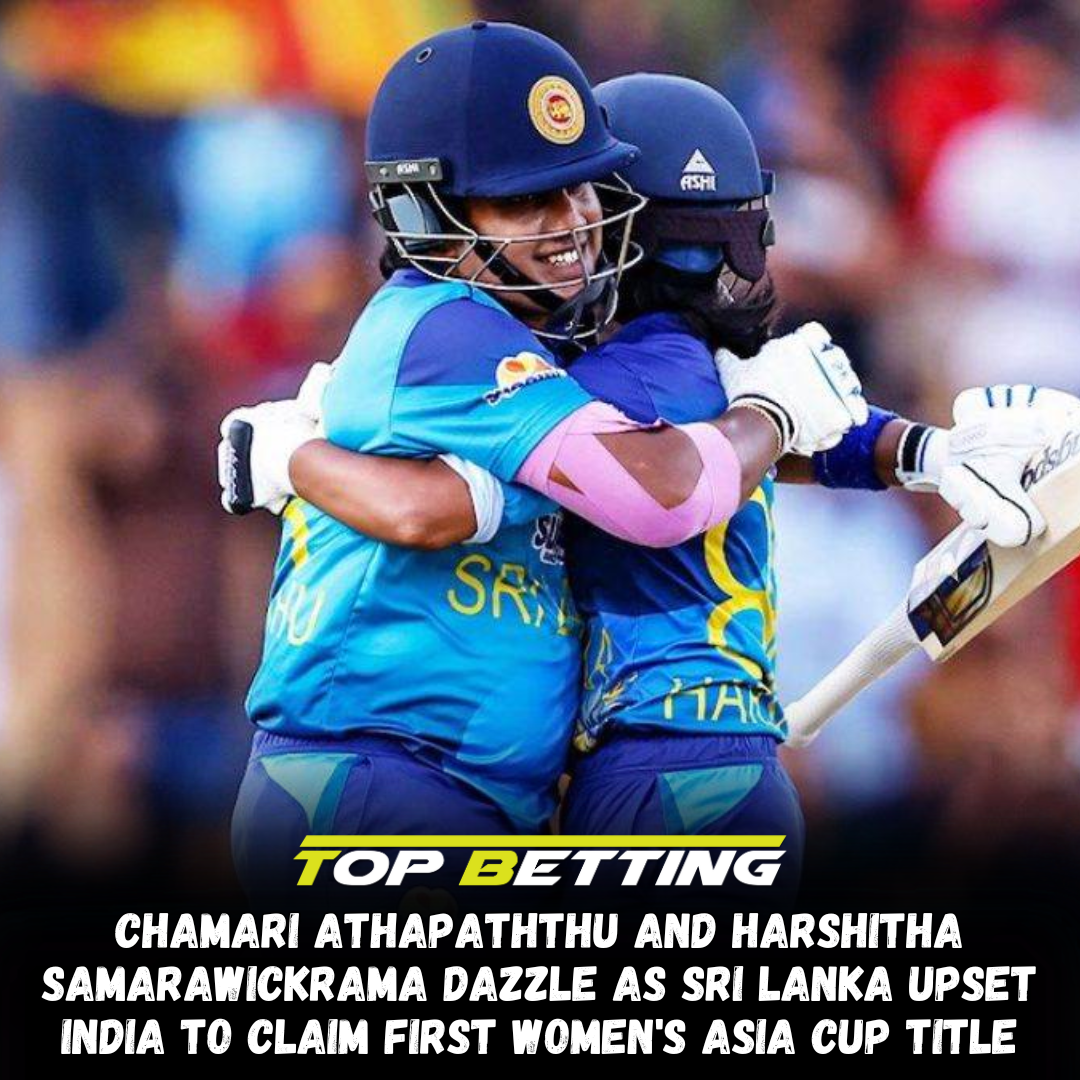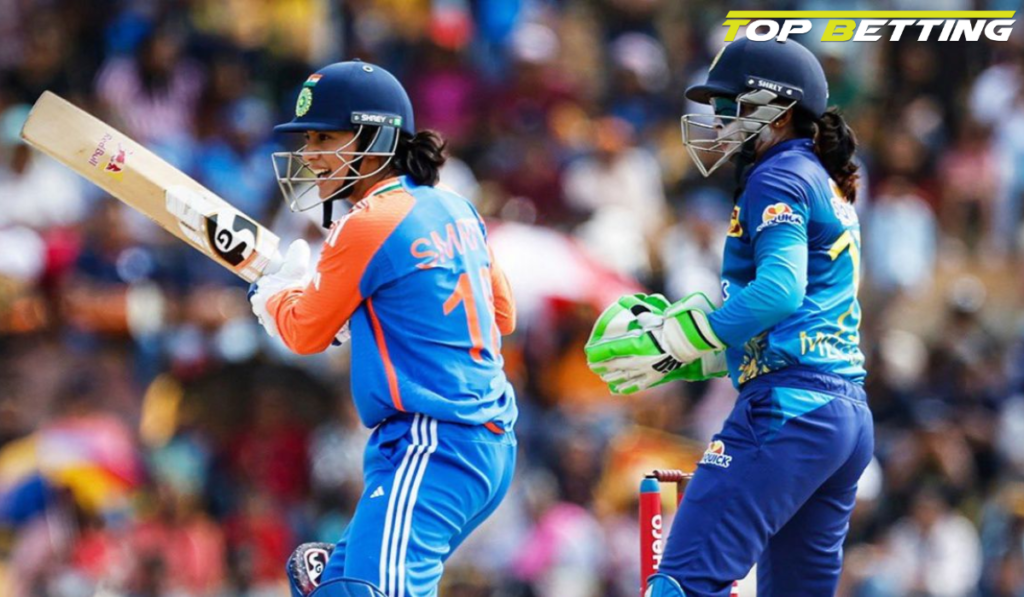

Chamari Athapaththu and Harshitha Samarawickrama Dazzle as Sri Lanka Upset India to Claim First Women’s Asia Cup Title
Chamari Athapaththu and Harshitha Samarawickrama showcased a formidable partnership that powered Sri Lanka to an eight-wicket triumph over defending champions India in the Women’s Asia Cup final on Sunday. This victory marked Sri Lanka’s maiden title win in the history of the Women’s Asia Cup, a significant achievement that highlights their growth and resilience in women’s cricket. It was only the second time in nine editions across WODI and WT20I formats that India faced defeat in a final, the first being against Bangladesh in 2018 in Kuala Lumpur.
Sri Lanka was set a challenging target of 166, which they successfully chased down, thanks to the exceptional performances of captain Chamari Athapaththu and Harshitha Samarawickrama. Athapaththu scored a scintillating 61 off 43 balls, an innings studded with nine boundaries and two sixes, while Samarawickrama remained unbeaten on 69 from 51 deliveries, hitting six fours and two sixes. Together, they added 87 runs for the second wicket, ensuring that Sri Lanka always stayed ahead of their opponents.
The partnership between Athapaththu and Samarawickrama was a study in contrasts. Athapaththu was aggressive, reaching her fifty in just 33 balls and attacking the Indian bowlers with a variety of shots all around the field. Her assault on left-arm spinner Tanuja Kanwar was particularly notable, as she hit Kanwar for two fours and a six in a single over. On the other hand, Samarawickrama played a more measured innings, reaching her half-century in 43 balls. She lacked the raw power of her captain but made up for it with clever shot placement, using reverse sweeps and other innovative shots to keep the scoreboard ticking.
The Indian bowlers managed to make a breakthrough when Deepti Sharma bowled Athapaththu around her legs with a fuller delivery, sparking brief celebrations among the Indian team. However, these celebrations were short-lived as Samarawickrama found an able partner in Kavisha Dilhari. Dilhari played a crucial cameo, scoring an unbeaten 30 off just 16 balls, which included one four and two sixes. Together, Samarawickrama and Dilhari added 73 runs off just 40 balls for the unbeaten third wicket, guiding Sri Lanka to their historic win with 8 balls to spare.
The victory was not just about the batting prowess of Athapaththu and Samarawickrama. Equal credit must be given to the Sri Lankan bowlers, who effectively stifled the Indian batters and restricted them to a score of 165 for six. Smriti Mandhana was the standout performer for India, scoring a defiant 60 off 47 balls, an innings that included ten boundaries. Mandhana’s half-century was instrumental in giving India a fighting total, but she received limited support from the rest of the batting lineup.
Mandhana’s innings was marked by a mix of powerful shots and innovative strokes. She had a slice of luck early on when she was dropped on 10 by Samarawickrama at covers off the bowling of Dilhari. The Indian vice-captain capitalized on this reprieve, playing some gorgeous shots, especially against the lone pacer in the Sri Lankan attack, Udeshika Prabodhani. Mandhana carted Prabodhani for three fours in the sixth over, helping India reach 44 for no loss at the end of the Power Play.
However, the Indian innings faced a setback when Shafali Verma, struggling to time her shots, was trapped leg-before by Dilhari for 16 off 19 balls. The dismissal of Verma brought a temporary halt to India’s momentum. Mandhana continued to fight, resorting to scoops and shuffles to counter the slow nature of the pitch, but the slowness eventually consumed other batters like Harmanpreet Kaur and Uma Chetry, who was promoted to No. 3 but failed to make an impact.
At 87 for three in the 12th over, India needed a significant partnership to boost their total. Jemimah Rodrigues provided some impetus with an aggressive 29 off 16 balls, including three fours and a six. Rodrigues and Mandhana added 41 runs off 25 balls for the fourth wicket, but the run out of Rodrigues and the subsequent dismissal of Mandhana pushed India on the back foot. India found themselves at 133 for five in the 17th over, needing a strong finish to post a competitive total.
Richa Ghosh played a swift and impactful innings towards the end, scoring 30 off 14 balls with four boundaries and a six. Her partnership with Pooja Vastrakar added 31 runs for the sixth wicket, helping India cross the 160-run mark. Ghosh’s innings included a massive slog-swept six off Dilhari over mid-wicket, providing a much-needed boost to India’s total.
Despite the late surge, the Indian batters found it challenging to score freely against the Sri Lankan spinners, who bowled with discipline and accuracy. The slow nature of the pitch played into the hands of the Lankan bowlers, who included only one pacer in their ranks and relied heavily on their slow bowlers to keep the Indian batters in check.
In the end, Sri Lanka’s comprehensive eight-wicket win was a result of their all-round performance, with both batters and bowlers playing their parts to perfection. This historic victory in the Women’s Asia Cup final not only marked a significant milestone for Sri Lankan women’s cricket but also showcased the potential and talent within their team. For India, it was a rare defeat in an Asia Cup final, a reminder of the challenges that lie ahead and the need for consistent performances to maintain their dominance in the region.











